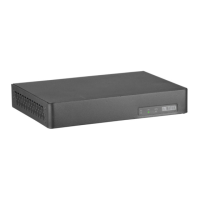Matrix PRASAR UCS System Manual 1257
PCAP Trace
What's this?
PCAP or packet capture consists of intercepting and logging the traffic passing over a digital network or a part of a
network. PCAP intercepts each packet in the data streams that flow across the network, and can decode and
analyze its contents.
PCAP can be used, among others, to monitor the network, detect and analyze network problems, debug client/
server communications, debug network protocol implementations.
PRASAR UCS supports PCAP Trace for the LAN Port, WAN Port, Internal Interface as well as RTP packets to and
from the system. PCAP Trace is supported for both IPv4 and IPv6 addresses.
The PCAP Trace of the Extended IP Phones can be accessed using the FTP of the phone. The access to the FTP
is secured by a password and it can be changed. For detailed instructions, see “FTP Access for Extended IP
Phones”.
Packets traveling over a network are captured and saved locally in the system or at a remote location. You can
save these trace files (packets captured by the system) on a PC and open these trace files using a graphical packet
capture and protocol analysis tool such as Wireshark or Ethereal.
PRASAR UCS also supports Filters and 'Promiscuous' mode for capturing packets, which you can use to specify
the types of data packets to be captured.
How to use
Using PCAP Trace of PRASAR UCS
When the PCAP Trace data are stored locally a maximum of 10 MB of packets can be captured and stored in the
PRASAR UCS.
To use PCAP Trace of PRASAR UCS,
• Login as System Engineer.

